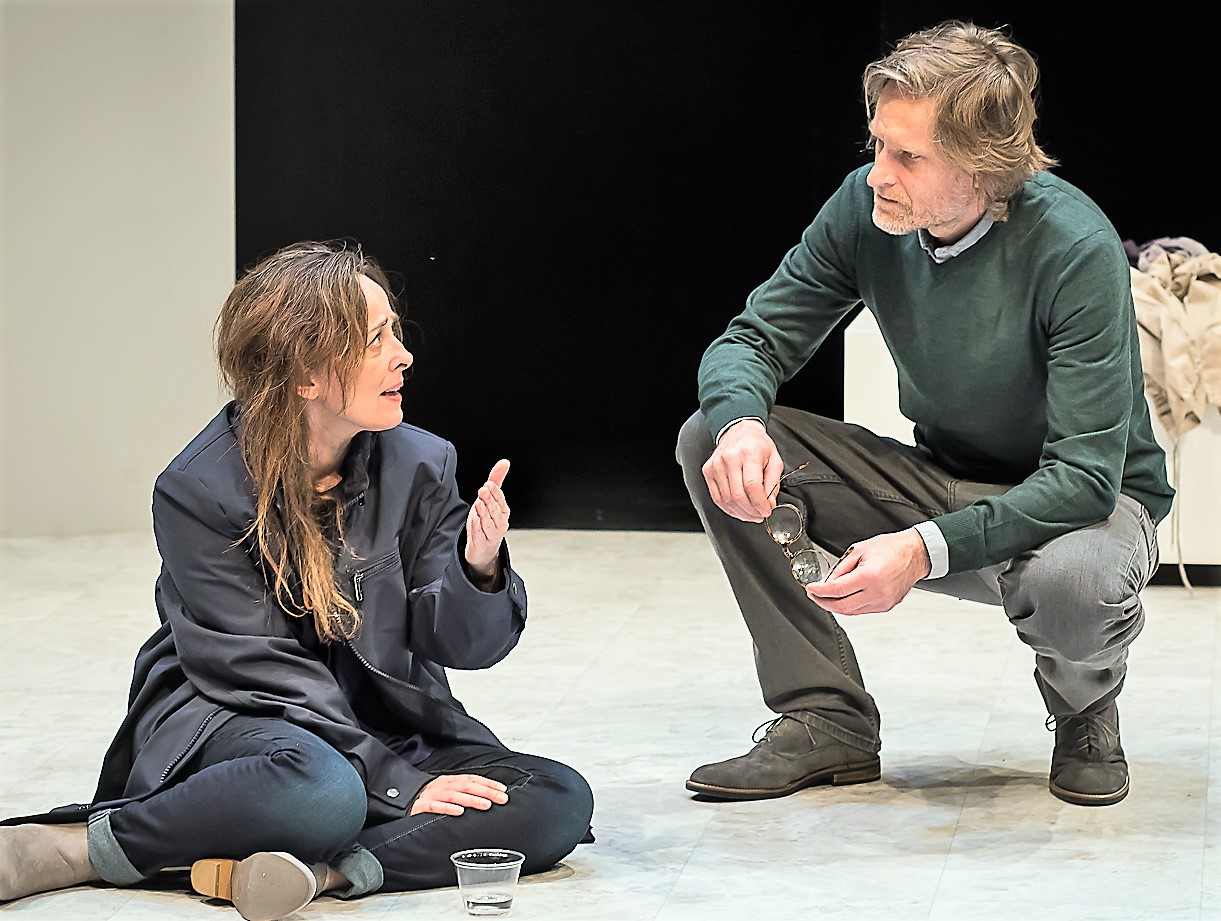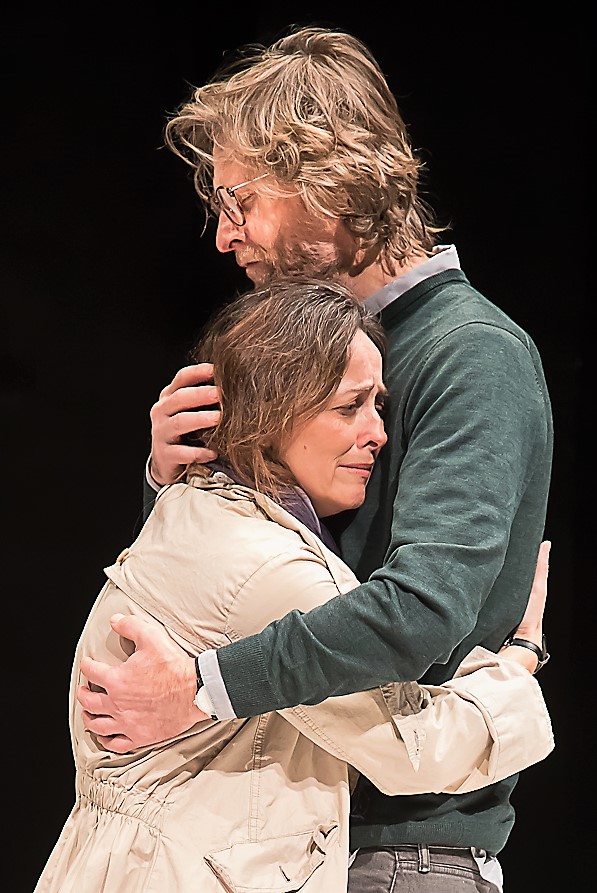Dutch playwright Lot Vekemans’ Poison, directed by Erwin Maas for Origin Theatre Company, delicately tells a story of loss, pain and grief with an unspoken complexity. This gnawing two-person play, elegantly translated in to English by Rina Vergaano, unfolds in a nondescript white room with an equally nondescript vending machine, a perfect room for waiting. As the audience arrives, actor Michael Laurence, who plays a character known only as He, is found doing just that—waiting. He is checking his phone, pacing, drawing intrigue by the slightest shake of his foot. Laurence conveys the growing stress on He’s nerves, until the light goes down and the play begins. Soon after, his character is joined by an anxious Birgit Huppuch as She, and the intricate layers of their relationship begin to reveal themselves. After having been separated, without speaking, for nine years, the couple has been brought together to discuss what is to be done about the groundwater poisoning that is seeping into the grave of their deceased young son.
Poison, structured in three parts and running 90 minutes,explores grief and the different ways people process tragic loss, emphasizing the importance of communication. She—Huppuch’s character—is an example of someone who does not know how to cope with loss. She is eaten up with darkness to the point where it completely consumes her and all her actions. “Every step I take is with him in my head / Putting water in the kettle for tea / Opening a fridge and shutting it again / Buttering bread / Slicing cheese / Pouring milk / He’s there everywhere.” By contrast, Laurence appears to have figured out how to live fairly happily every day with his wound loosely stitched up. Despite this façade, he has not fully processed his loss, and the wound is ready to burst open at the slightest touch. Neither character understands the other, or their way of handling the situation, thus making it impossible to communicate openly.
She has several outbreaks, many seeming ungrounded in their nature, but they are also deeply honest. She is unstable, hurting and not able to control her emotions. Meanwhile, He is contained and practical, but in one instant breaks down, and Laurence shows the pain hitting his character from his toes to his thighs, stomach and chest. In this moment, it’s clear how much they are both suffering.
By the third segment the couple has become weary from fighting. Although at times the energy flowing through the first two-thirds is lost, the characters’ fatigue is grounding, as He and She are reacquainted with the love they once had for each other. Their feelings and memories stream out and they are able to talk honestly for the first time in years. The characters’ nostalgic reconnection is heartbreaking and shows the importance of communication in relationships.
For the production Maas has employed live vocals, performed by Jordan Rutter. Although the melodies are beautiful and haunting, they can be slightly jarring and tend to draw the audience out of the world of the play, when one desperately wants to stay connected.
The set, designed by Jian Jung, perfectly reflects the hopelessness of the story. The white floor, walls and single bench are cold and empty. There is no comfort in this space, nowhere to hide: it looks like the waiting room you never want to be in. Jeanette Oi-Suk Yew splashes a dull white light across the set, making everything look icy and unwelcoming.
The loss of the couple’s son represents a universal grief that is understandable to anyone who has felt this kind of sorrow. Though this couple dances around the pain, it is in the moments of silence, the irrational outbursts, and inside the empty spaces that the audience is let in and allowed to see how deeply challenging and complex it is to be human.
Lot Vekemans’ Poison is being performed at the Beckett Theatre at Theatre Row (410 West 42nd St) until Dec. 11. Evening performances are at 8 p.m. Wednesday through Saturday (but not Nov. 23; a Tuesday performance on Nov. 22 replaces it); matinees are at 2 p.m. Saturdays and 3 p.m. Sundays. For tickets and the schedule, call 212-239-6200 or visit www.origintheatre.org.





